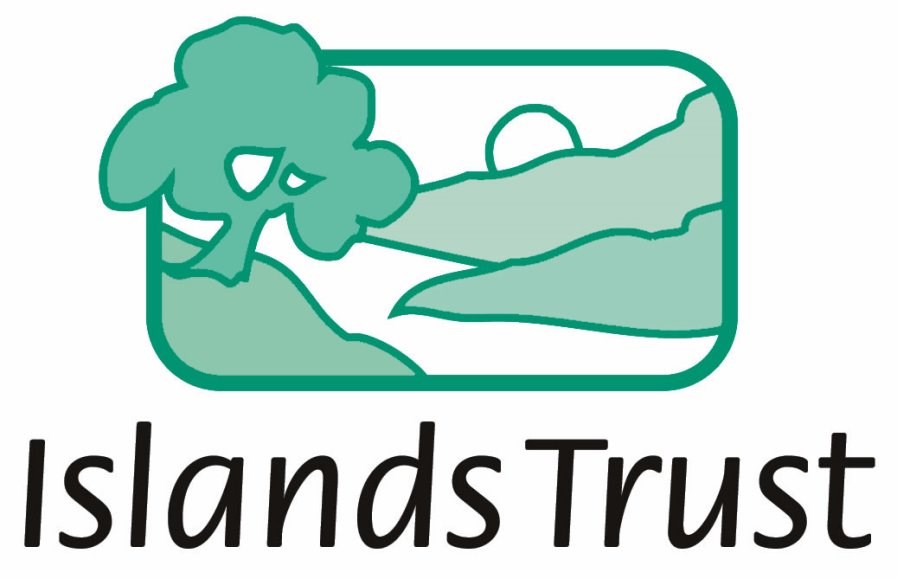There will be an additional question on the municipal election ballot this October regarding Bowen’s future dealings with the Islands Trust.
The query – officially branded as an opinion poll – isn’t about whether Bowen Island should remain a member of the group. Rather, it’s asking whether the municipality (BIM) should renegotiate the tax formula which commits Bowen to payments now topping $320,000 a year to the provincial organization.
The Bowen Island municipal property tax levy is a unique funding source of Islands Trust that collects money from BIM based on the assessed values of buildings and properties on the island. The Trust hiked Bowen’s contribution by four per cent this year, bringing the municipality’s total 2022/23 bill to $323,769.
Chief administrative officer Liam Edwards says the formula – which hasn’t been updated since 1999 – is outdated and unfair toward Bowen. “The requisition formula was amended when Bowen Island became a municipality to recognize a municipal government. At that time I don’t think it was contemplated how much autonomy and independence an island municipality would have from the Trust itself.”
“So the requisition sections within the act really speak to the municipality still contributing to the core functioning of the administration of the Trust in the same way that any other island would. However, I think BIM demonstrated a higher degree of independence and autonomy,” Edwards added.
Edwards says BIM gets much better value per dollar from the Metro Vancouver tax requisition – less than half of the Trust requisition – particularly through the work of Metro Parks. Mayor Gary Ander added he even felt BIM’s tax contribution to Translink was more useful due to services islanders use when on the mainland.
No municipal desire to leave Islands Trust
Coun. Michael Kaile, also an Islands Trust trustee, introduced the motion at council’s last meeting. He said he wanted to be clear the question focused specifically on the tax formula, and not turn into a debate about Bowen’s continued membership in the group. Islands Trust received significant negative public feedback – both on Bowen and other member islands – during recent surveys on their budget and policy statement.
“Quite frankly there were some pretty unkind, bitter things said on the subject of Islands Trust. We’re part of this federation; we work hard on a lot of changes, work hard on some new directions,” said Kaile.
“We have to make it very clear that no, we’re not going to leave this… and it’s (question) going to be absolutely targeted and directed.”
In fact, BIM has indicated they plan to support Islands Trust in the organization’s upcoming pitch to the provincial government for more funding. Edwards says Trust funding has been neglected by Victoria.
“The other element that is unfair… is that the provincial contribution to the Islands Trust administration has never been increased since its inception,” said Edwards. He added this is especially out of line because the Trust is a provincial organization, making its employees provincial employees.
Coun. Sue Ellen Fast later submitted numbers showing not only has the provincial contribution not gone up, instead it’s been reduced heavily since the organization’s creation. In 1994/95, Islands Trust received $469,000 from the province. Today that number is $180,000.
Opinion poll's presence in municipal election debated
Councillors agreed a review of Bowen’s tax formula was necessary. But many of them were concerned at the prospect of linking the question with the municipal election.
“I think this would be really polarizing around election time,” said Fast. “At the time of the National Park question, I think that referendum was damaging to our community because it polarized people’s ideas about what was happening on Bowen Island.”
Bowen residents narrowly voted against establishing the Bowen Islands National Park Reserve in 2011, with 55 per cent of voters opposed to the project. Residents at the time said they were worried about ferry gridlock and park fees. Parks Canada abandoned the idea following the referendum.
“There was a lot of discussion that could have been helpful, and constructive discussion sort of got into a ‘them and us’ side of things,” recalled Fast of the park debate.
“I have the same concerns about having the question at the same time as the election. I think that the threat of encouraging divisiveness is very real when bringing up the Islands Trust and their relationship (with Bowen),” said Coun. Maureen Nicholson. “I appreciate that we do need to have that conversation about the annual tax requisition, I just don’t support this resolution and this process.”
Coun. David Hocking added his voice to the timing fears. “What people do with information isn’t always based on the information, it’s based on some trigger. And I’m very worried about doing it as part of the election as well,” he said.
“I agree, however, that we should be doing this. And I agree that we need to give our negotiators ammunition,” said Hocking.
A viable alternative proved hard to come by though. Hiring outside consultants would take more time and cost extra money, as well as require greater staff involvement in the process. After discussion failed to yield another approach, councillors circled back to the original election day suggestion.
“This is the most efficient way to get an opinion poll on that question,” said Ander.
Edwards says “The opinion poll lends weight to the position that we would be arguing for – if it’s in favour. And the province would prefer to have that.”
“If it is to get some political traction, I think it’s very important that the island (Bowen) indicates one way or another the strength of feeling on this subject,” concluded Kaile. “I think it’s important that the people tasked with (renegotiating) know the degree of support it’s going to get on the island.”
Council voted 5-2 to include the opinion poll on the October 15 ballot. Councillors Fast and Nicholson were in opposition.



